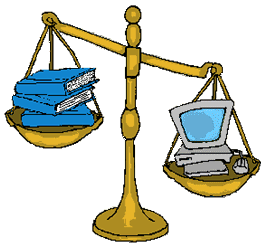
Now that you know the wide range of sources available to you, how do you select the best one for your research?
The best sources will depend on the type of information you are trying to find.
The following chart illustrates how the information you need will affect your choice of the best sources for you to use.
| Information needed | Possible sources | Finding aids |
|---|---|---|
| General introduction to your subject | Encyclopedia entries, web sites | Internet search engines (Google, Yahoo), Wikipedia, Virtual Reference Desk |
| Comprehensive text on your subject | Books, textbooks, review articles | Library catalogue, bibliographic databases |
| Results of in-depth research on your subject | Articles in scientific journals, research reports, conference proceedings, dissertations | Library catalogue, bibliographic databases, Google Scholar, Scirus |
| Information on practical applications | Articles in professional journals, web sites | Bibliographic databases, Internet search engines (Google, Yahoo) |
| Popularized or simplified information on scientific research or discoveries | Articles in professional journals, web sites | Bibliographic databases, Internet search engines (Google, Yahoo) |
| Commentaries, expert or popular opinions | News sources, blogs | Google News |
| Recent events and developments | News sources, blogs | Google News |
| Company information | Web sites, news sources | Internet search engines (Google, Yahoo) |
 You can develop more robust and convincing arguments by not relying too heavily on one
source of information. Choosing a variety of sources can be an excellent way to find
support for your thesis as well as provide different points of view on your topic.
You can develop more robust and convincing arguments by not relying too heavily on one
source of information. Choosing a variety of sources can be an excellent way to find
support for your thesis as well as provide different points of view on your topic.